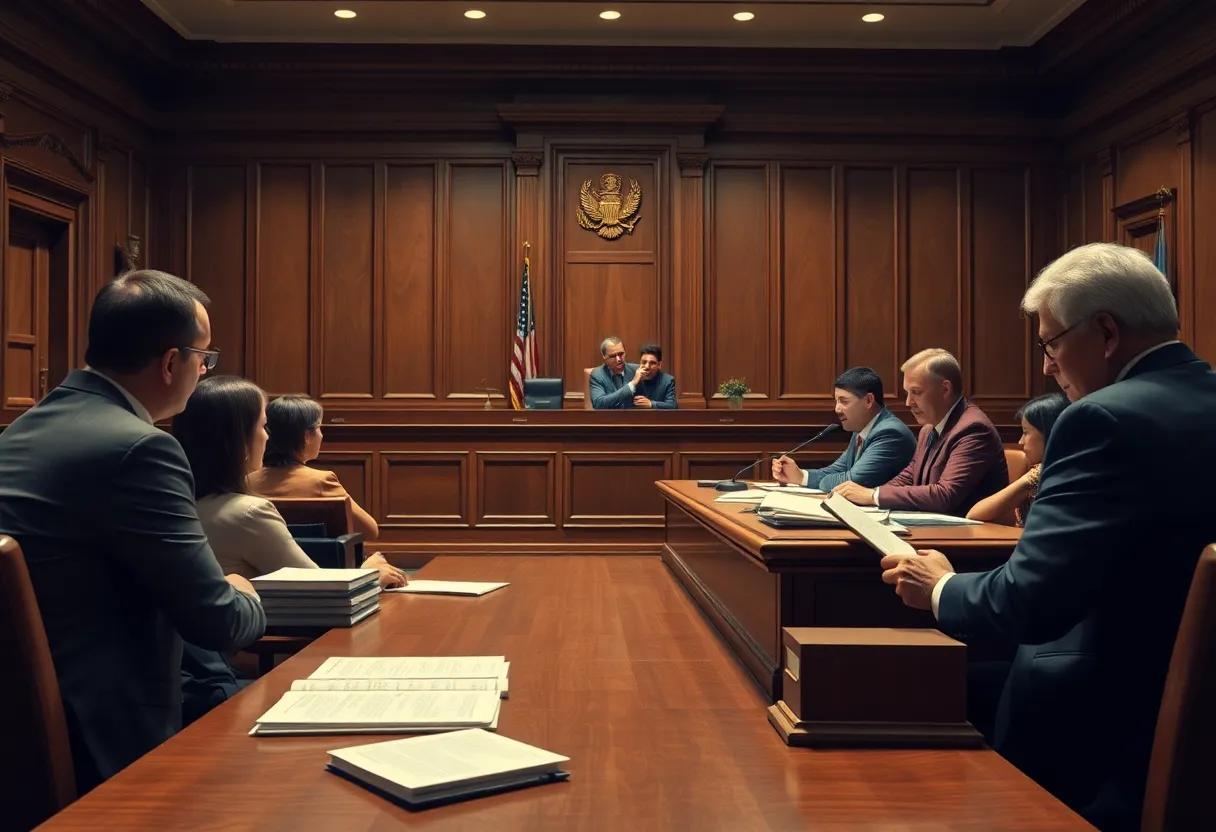News Summary
In a significant legal victory, the widow of Jacob Lilienthal was awarded $2.6 million after her husband died from lung cancer linked to asbestos exposure. The case, highlighting the dangers workers faced, revealed the railroad company’s long-standing negligence regarding health risks associated with asbestos. Despite efforts to appeal, the jury’s decision underscores the importance of workplace safety and the ongoing fight for justice for victims of asbestos-related diseases.
Major Victory for Widow of Railroad Worker Exposed to Asbestos
In a landmark case that highlights the ongoing dangers of asbestos exposure, the widow of Jacob Lilienthal has secured a significant $2.6 million damages award following her husband’s death due to asbestos-related lung cancer. This case serves as a stark reminder of the perilous environments many workers, particularly in the railroad industry, faced during their careers.
The Cost of Negligence
Jacob Lilienthal spent decades working for the GM&O Railroad, a precursor to the Illinois Central Railroad Company, where he was exposed to a litany of hazardous materials containing asbestos. As a young man beginning his laborious journey at just 17 years old, Lilienthal worked as both a laborer and machinist, often handling products that contained asbestos in forms such as rope, insulation, gaskets, and packing materials. His years of service, unfortunately, culminated in a diagnosis of asbestosis followed by lung cancer—a condition that his physician directly linked to his occupational exposure to these toxic substances.
A Jury’s Decision
The courtroom drama unfolded over two weeks, with an Illinois jury presented with compelling evidence showing the railroad’s negligence. The jury learned that the railroad company had been aware of the dangers of asbestos since the 1930s, understanding its link to asbestosis even then and to lung cancer by the 1950s. Crucially, the company failed to warn employees like Lilienthal about these health risks or to create a reasonably safe work environment.
During the trial, jurors were astutely informed about Lilienthal’s smoking history as well. It was presented that he took up smoking around the same time as he began working, which in conjunction with asbestos exposure, was a significant factor in his declining health. An expert witness elaborated on the compounded risks, indicating that smoking increases the risk of lung cancer by approximately tenfold, and when combined with asbestos, the risk surges to nearly fifty times.
The Appeal Process
Following the jury’s verdict, the railroad company pursued an appeal, questioning its liability in the case and asserting their lack of negligence. However, the appeals court stood firm, upholding the jury’s findings. The court maintained that the railroad did not adequately address the known health risks associated with asbestos and recognized that the jury correctly evaluated the impact of Lilienthal’s smoking history in their compensation decision.
Despite the jury reducing the final award by 45% due to the influence of his smoking, the decision nonetheless represents a vital acknowledgment of the systemic failures related to asbestos management and workplace safety. The appeals court found that the railroad had historical knowledge of the health risks yet chose to ignore those dangers, leaving workers in the dark.
Conclusion
This case is not just another legal battle; it symbolizes the ongoing struggle against the legacy of asbestos exposure and the importance of safeguarding workers’ rights. Victims and families affected by asbestos-related diseases continue to advocate for justice, and legal victories such as this one provide hope for those suffering in silence.
If you or someone you love has been impacted by asbestos exposure, it is crucial to seek assistance. Resources are available through patient advocacy groups specializing in these devastating conditions. Just remember, the fight against asbestos-related illness is far from over, and each case that brings attention to this issue is a step towards justice and greater awareness.
Deeper Dive: News & Info About This Topic
HERE Resources
The Hidden Threat: Mesothelioma and Asbestos Exposure in Florida
Former Marine Mechanics and Maritime Workers Urged to Seek Legal Help for Mesothelioma or Lung Cancer
Mesothelioma Rates On the Rise: A National Health Crisis
Veteran’s Legal Battle for Justice Against Asbestos Exposure
New Asbestos Testing Standards Set to Impact Talc Products
Significant Findings Unraveled in the Battle Against Mesothelioma
Novocure to Showcase Innovations in Oncology at 43rd Annual J.P. Morgan Healthcare Conference
Asbestos Companies Using Legal Maneuvers to Escape Accountability
Warning Signs from the Classroom: The Alarming Asbestos Crisis in UK Schools
New FDA Proposal Targets Asbestos Testing in Talc Cosmetics
Additional Resources
- Pantagraph: Full Text Remarks from Workers Memorial Day
- Wikipedia: Asbestos
- Asbestos.com: Abex Corporation
- Google Search: Asbestos Exposure
- Pantagraph: Bloomington’s Asbestos Workers
- Encyclopedia Britannica: Asbestos
- Construction Dive: OSHA Slaps Companies with $18M Fine
- Google News: Asbestos Lawsuit



















